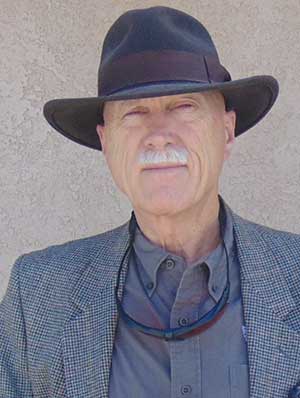
U.S.A. -(Ammoland.com)- Judge Robert S. Lasnik, who ruled for a lawsuit by State Prosecutors against both the First and Second Amendments, refused to allow the prosecutors to bully people and organizations not parties to the lawsuit. The ruling, given Judge Lasnik’s history, was welcome. His decision came on Friday, 22 March, 2019. From saf.org:
BELLEVUE, WA – A U.S. District Court judge in Seattle has denied a motion by the Washington State Attorney General’s office that sought to compel the Second Amendment Foundation and Defense Distributed to provide discovery responses in a lawsuit the state filed against the U.S. State Department relating to the publication of information about 3D printing of gun designs.
The four-page order was signed by U.S. District Court Judge Robert S. Lasnik on Friday. In his order, he reminded state Attorney General Bob Ferguson’s office that when a preliminary injunction was issued last August, it was not against the private defendants in the case, only the federal government. Ferguson’s office is suing the government, SAF and Defense Distributed, the source of computer design data relating to the production of 3D printed guns.
In his ruling, Judge Lasnik noted, “the injunction issued in this case regulates the acts or omissions of the federal defendants: it imposes no duties or restrictions on the private defendants, but rather reinstates the pre-July 27, 2018, regulatory scheme related to access, discussion, use, and reproduction of the CAD files. Plaintiffs did not request relief from or against the private defendants, and the Court made clear at oral argument that the injunction itself did not require the private defendants to take or refrain from any activities…”
He further reminded Ferguson’s office that, “…the private defendants are no more subject to the preliminary injunction than is any other person contemplating the export of computer data files that would allow the creation of guns and their components with a 3D printer.”
Judge Lasnik was appointed by President Clinton on 11 May, 1998. He assumed senior status (semi-retired) on 27 January, 2016. Lasnik applied a permanent injunction against Defense Distributed on August 27, 2018. The injunction prevents the settlement made between Defense Distributed and the Department of Justice to go forward. The Department of Justice reached the settlement because they believed the prosecution to be a direct case of violation of First Amendment rights, which they would lose in court. From seattletimes.com, 31 July, 2018:
During the Tuesday hearing in Seattle, Eric Soskin, a lawyer for the U.S. Justice Department, said they reached the settlement to allow Defense Distributed to post the material online because the regulations were designed to restrict weapons that could be used in war, and the online guns were no different from the weapons that could be bought in a store.
Since the weapons “did not create a military advantage,” he told Lasnik, “how could the government justify regulating the data?”
But the judge countered, “There is a possibility of irreparable harm because of the way these guns can be made.”
How the do the people bringing the lawsuit have standing? Where have they been harmed? The information that would be allowed is already on the Internet. The ability and knowledge on how to make simple firearms is widely available on paper. People have been making guns at home for hundreds of years. The entire lawsuit is a farce.
It has not been ruled a farce. Perhaps now, when the Department of Justice is no longer consumed by the infamous Mueller witch hunt, they can work to have this injunction against civil rights thrown out of court.
That is not likely, because Washington State is in the Ninth Circuit Court of Appeals. The Ninth Circuit is famous for having the highest reversal rate of any of the circuits. Moreover, the Ninth Circuit is notoriously slow in reaching decisions, especially decisions involving Second Amendment cases.
The Ninth is overturned in about 80% of the cases that are accepted by the Supreme Court; but the Supreme Court only accepts a small sample of the overall cases. Thus, most bad Ninth Circuit decisions are allowed to continue to have effect throughout the Ninth Circuit.
This case should never have been allowed to be brought. It is an excellent example of what you get when judge shopping is allowed.
Where does a single judge in Seattle obtain the power to neutralize the First Amendment for the nation based on a dubious theory of hypothetical harm?
The Supreme Court has allowed that power for far too long.
About Dean Weingarten:
Dean Weingarten has been a peace officer, a military officer, was on the University of Wisconsin Pistol Team for four years, and was first certified to teach firearms safety in 1973. He taught the Arizona concealed carry course for fifteen years until the goal of constitutional carry was attained. He has degrees in meteorology and mining engineering, and recently retired from the Department of Defense after a 30 year career in Army Research, Development, Testing, and Evaluation.
